Imagine a vibrant garden thriving with minimal effort, where tasks like watering and weeding are handled by intelligent systems. This isn’t a futuristic dream; it’s the reality enabled by smart garden tools. The global Intelligent Gardening System Market was valued at USD 265.42 million in 2024. It is projected to reach an impressive USD 2,448.07 million by 2033, demonstrating a remarkable Compound Annual Growth Rate (CAGR) of 28% [Data]. This significant growth highlights a clear trend: more people are seeking to simplify their outdoor responsibilities. This guide will introduce you to nine essential smart garden tools designed to transform your yard work into an effortless, enjoyable experience, leveraging the power of automated gardening tech.
Over 65% of urban households are already adopting smart gardening solutions to enhance plant growth with minimal effort Data]. These `smart garden tools` move beyond basic convenience. They represent a significant shift towards `automated garden systems` that utilize technology to create more efficient, sustainable, and convenient gardening practices [3]. By integrating these `connected gardening tools` into your routine, you can spend less time on chores and more time enjoying your beautiful outdoor space. For more insights into how smart technology can enhance your home’s exterior, consider exploring our guide on [smart outdoor devices.
What are the best smart garden tools? Here are nine essential smart garden tools that can significantly ease your yard care:
1. Smart Irrigation Systems & Smart Sprinkler Controllers
2. Smart Plant Sensors
3. Self-Watering Planters & Smart Hydroponic Grow Systems
4. Robot Lawn Mowers
5. Automated Weeding Robots
6. Smart Weather Stations for Garden
7. Smart Grow Lights
8. Garden Management Apps
9. Automated Composting Solutions
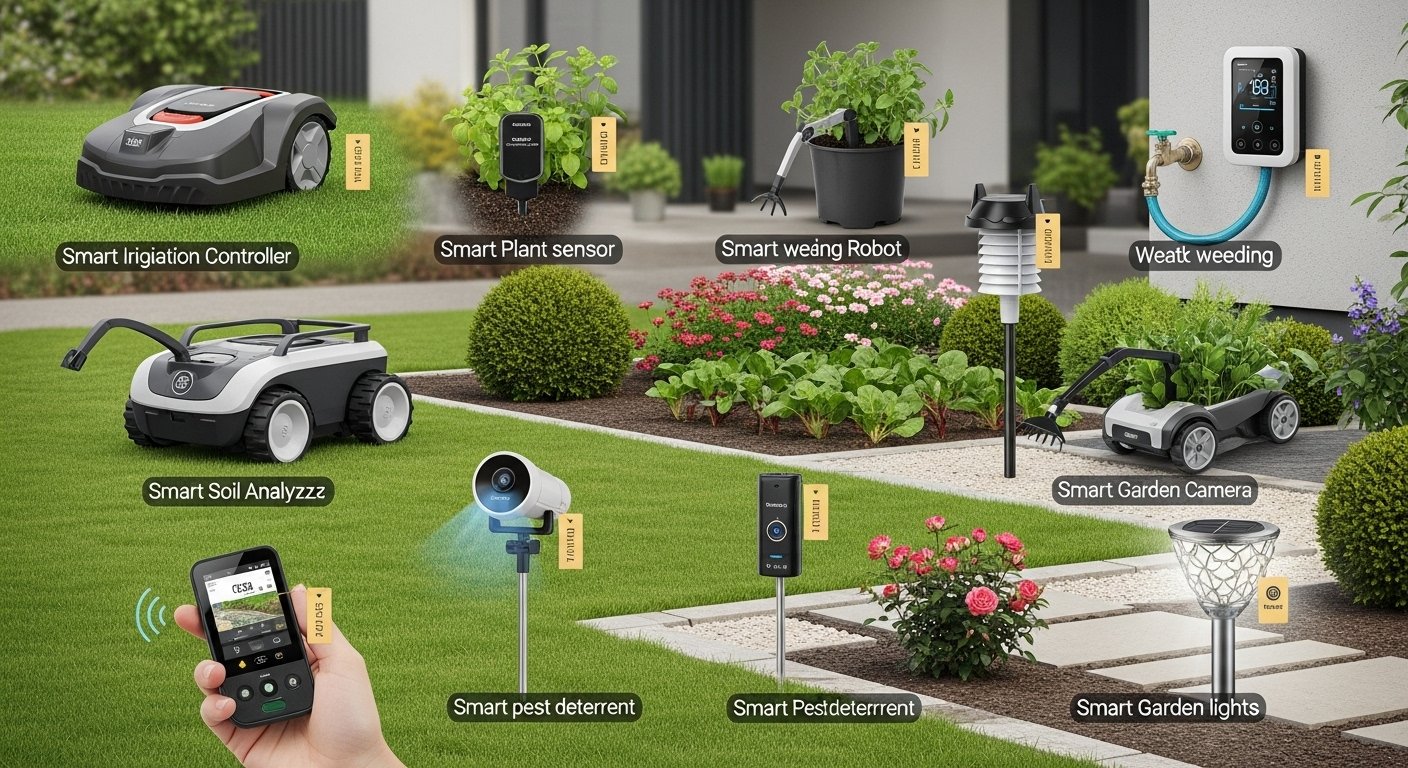
9 Smart Garden Tools Revolutionizing Your Yard
Embracing `smart gardening technology` means delegating repetitive tasks to clever devices. Each tool on our list serves a unique purpose. Together, they create a comprehensive `automated garden system` that caters to almost every aspect of yard maintenance.
1. Smart Irrigation Systems & Smart Sprinkler Controllers
Gone are the days of guessing when to water your plants. `Smart irrigation systems` and `smart sprinkler controllers` use advanced technology to deliver water precisely when and where it is needed [2]. These systems connect to your home’s Wi-Fi. They utilize local weather forecasts and real-time data from `wifi garden sensors` to adjust watering schedules automatically [2, 5]. Over 80% of smart gardens now utilize real-time sensing technology to monitor crucial environmental factors like soil moisture, temperature, and humidity [Data]. This ensures your plants receive optimal hydration, preventing both overwatering and underwatering.
How do smart irrigation systems work? They integrate sensors, weather data, and sometimes plant-specific needs to create dynamic watering plans 2]. Do smart irrigation systems really save water and effort? Absolutely. By avoiding unnecessary watering, they significantly reduce water waste and your utility bills [8]. This also frees up your time. Students can easily manage these systems through a smartphone app, making them a cornerstone of `effortless gardening tech` [7]. For more on integrating smart devices into your home, see our guide on [must-have smart home devices.
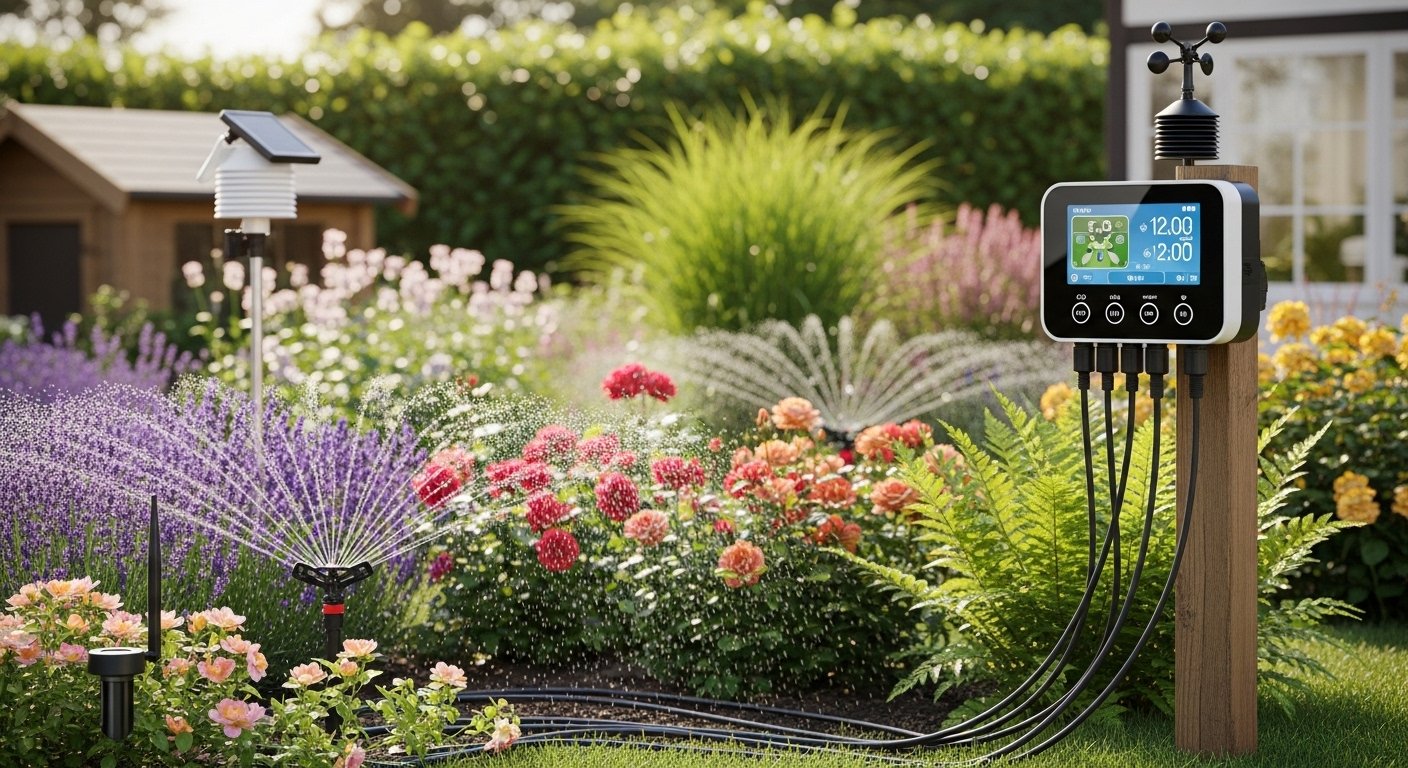
2. Smart Plant Sensors
These small, unobtrusive devices are the silent guardians of your garden. `Smart plant sensors`, often referred to as `soil moisture sensors`, are inserted directly into the soil [5]. They continuously monitor key metrics such as moisture levels, temperature, light exposure, and even nutrient levels [5, 10]. This real-time data is then sent to a companion app on your smartphone. Consequently, you receive immediate alerts and recommendations if your plants need attention. AI-powered sensing solutions have improved plant growth efficiency by 45% and reduced manual intervention by 50% [Data]. `Automated garden sensors` take the guesswork out of plant care. They empower you to make informed decisions for healthier, happier plants.
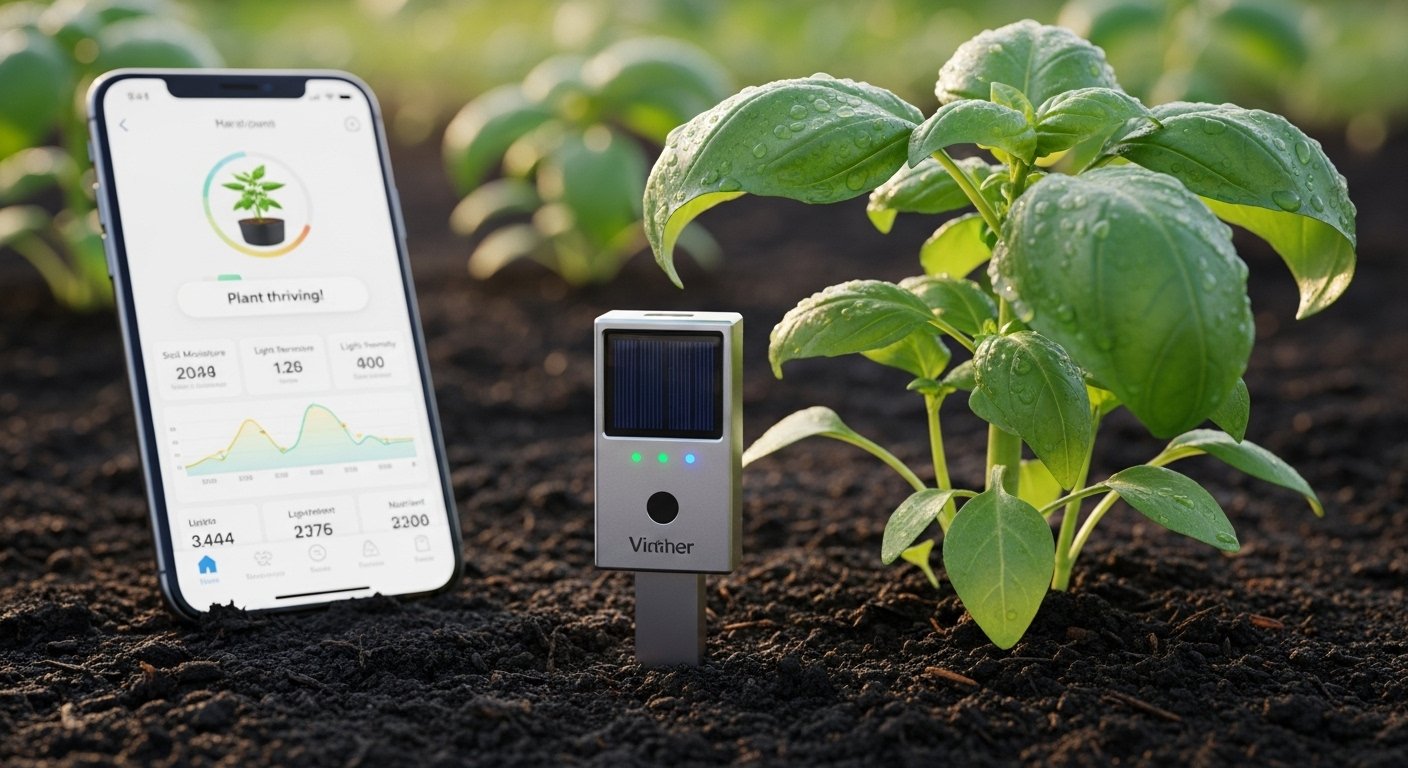
3. Self-Watering Planters & Smart Hydroponic Grow Systems
For those with limited space or a desire for indoor gardening, `self-watering planters` and `smart hydroponic grow systems` are game-changers. `Automated planters` contain built-in reservoirs that provide a consistent water supply to plants over several days or weeks. This eliminates the need for daily watering. `Smart indoor gardens` take this a step further, often integrating `smart grow lights` and nutrient delivery systems to create ideal growing conditions indoors. `Hydroponic grow systems (smart)` cultivate plants without soil, using nutrient-rich water solutions and precise environmental controls. They are perfect for growing herbs, vegetables, or flowers with minimal effort and maximum yield.
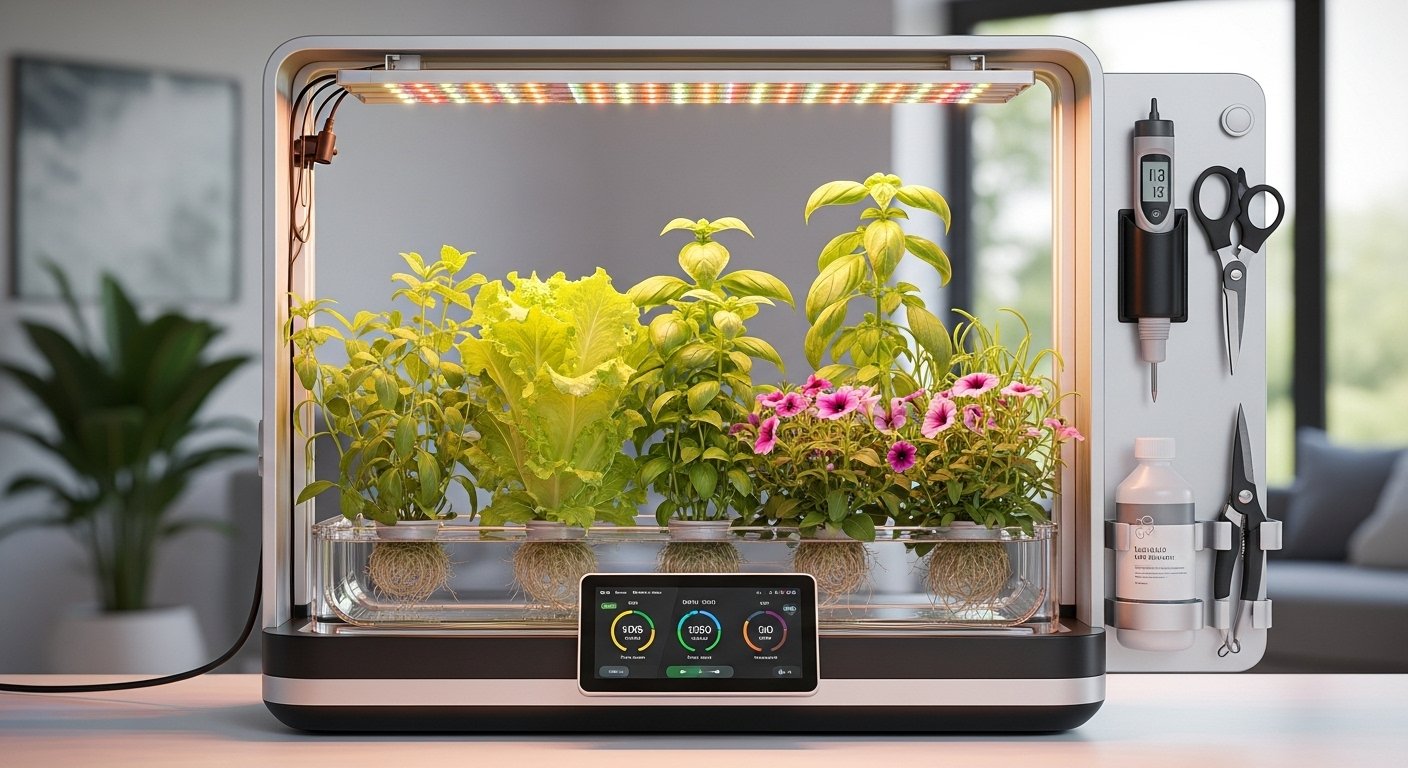
4. Robot Lawn Mowers
Tired of spending your weekends pushing a lawn mower? `Robot lawn mowers` offer a true `effortless gardening tech` solution. These autonomous `Robotic Lawn Mowers` navigate your lawn, intelligently mapping the area and cutting the grass on a schedule you set [1]. They are battery-powered, quiet, and return to a charging station when needed. Many models can handle different terrains and even navigate around obstacles. This means a consistently manicured lawn without any manual intervention from you. Are robotic lawn mowers and weeders effective for effortless yard care? Yes, they drastically reduce the time and physical effort required for lawn maintenance.
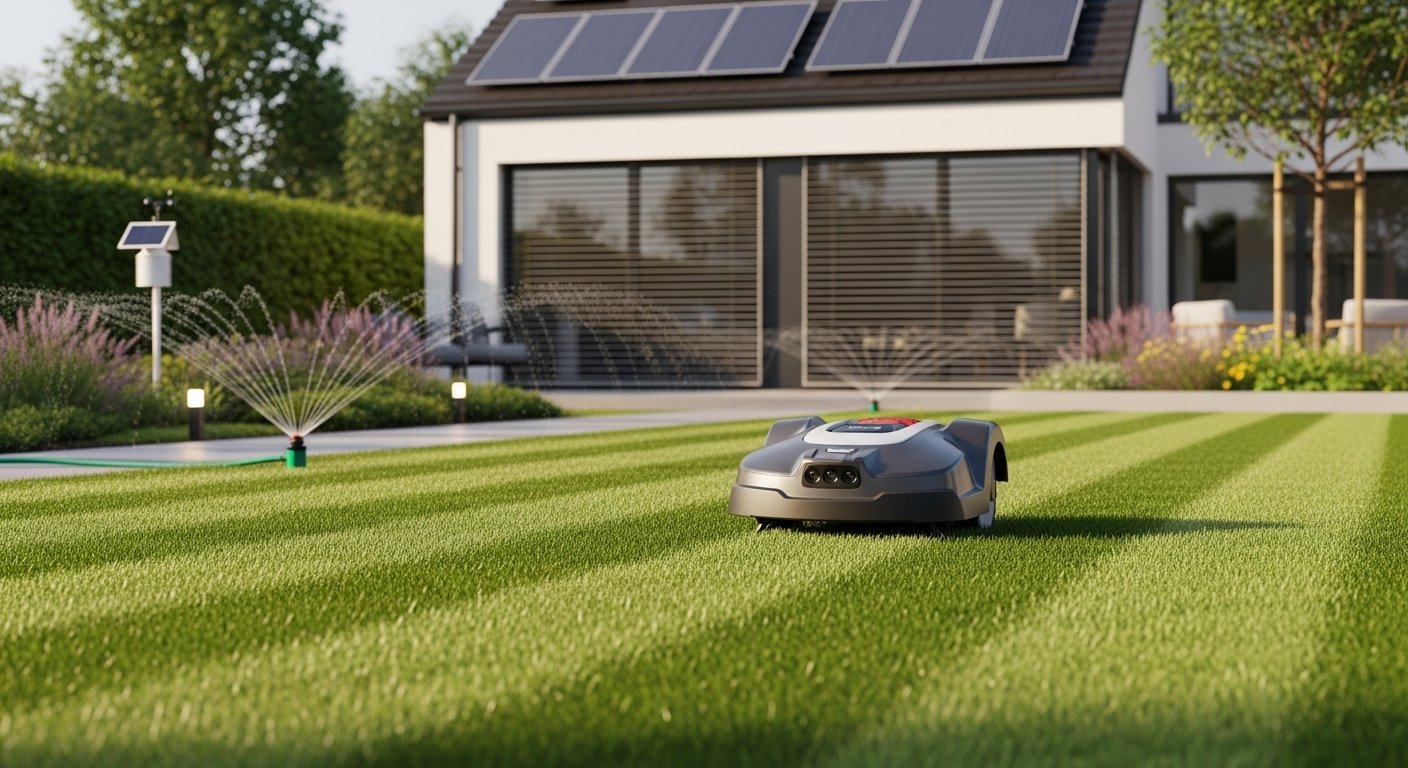
5. Automated Weeding Robots
Weeding is arguably one of the most tedious garden tasks. Fortunately, `automated weeding robots` are emerging as powerful `smart garden tools`. These clever machines use computer vision and AI to identify weeds among your plants [6]. They then precisely remove them, either mechanically or with targeted methods, without disturbing your desired vegetation. The `smart weeders` significantly reduce the need for herbicides and manual labor. This makes your garden care more environmentally friendly and truly `automated garden tools` [15]. Automation has improved yield efficiency by 80%, reducing labor [Data].
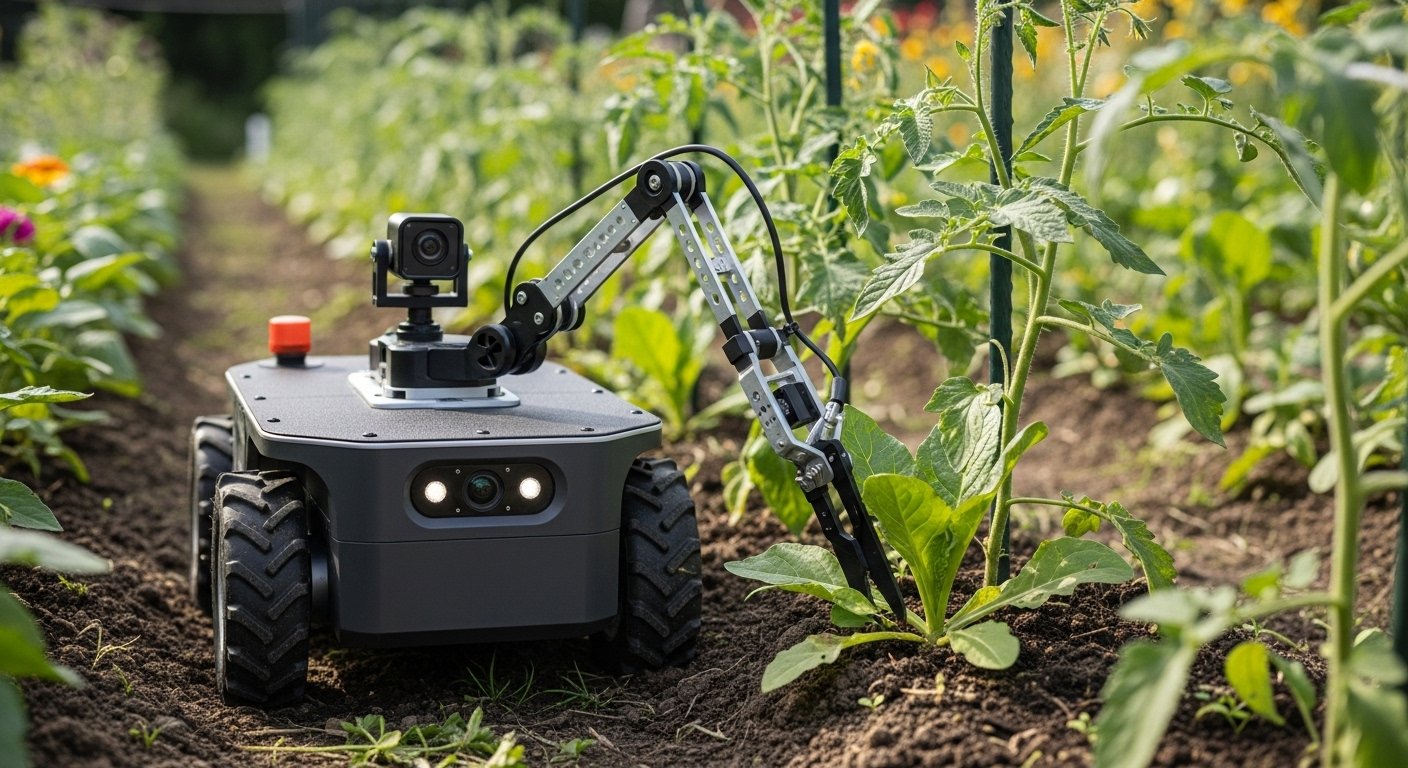
6. Smart Weather Stations for Garden
A `smart weather station for garden` provides hyper-local, real-time weather data specific to your outdoor space. Unlike general weather forecasts, these stations can measure temperature, humidity, rainfall, wind speed, and UV levels right in your yard [1]. This information is invaluable for making informed decisions about planting, fertilizing, and especially, integrating with `smart sprinkler controllers`. By understanding precise local conditions, you can optimize all aspects of your `garden management apps` and watering schedules. This helps create a truly `automated garden system`.
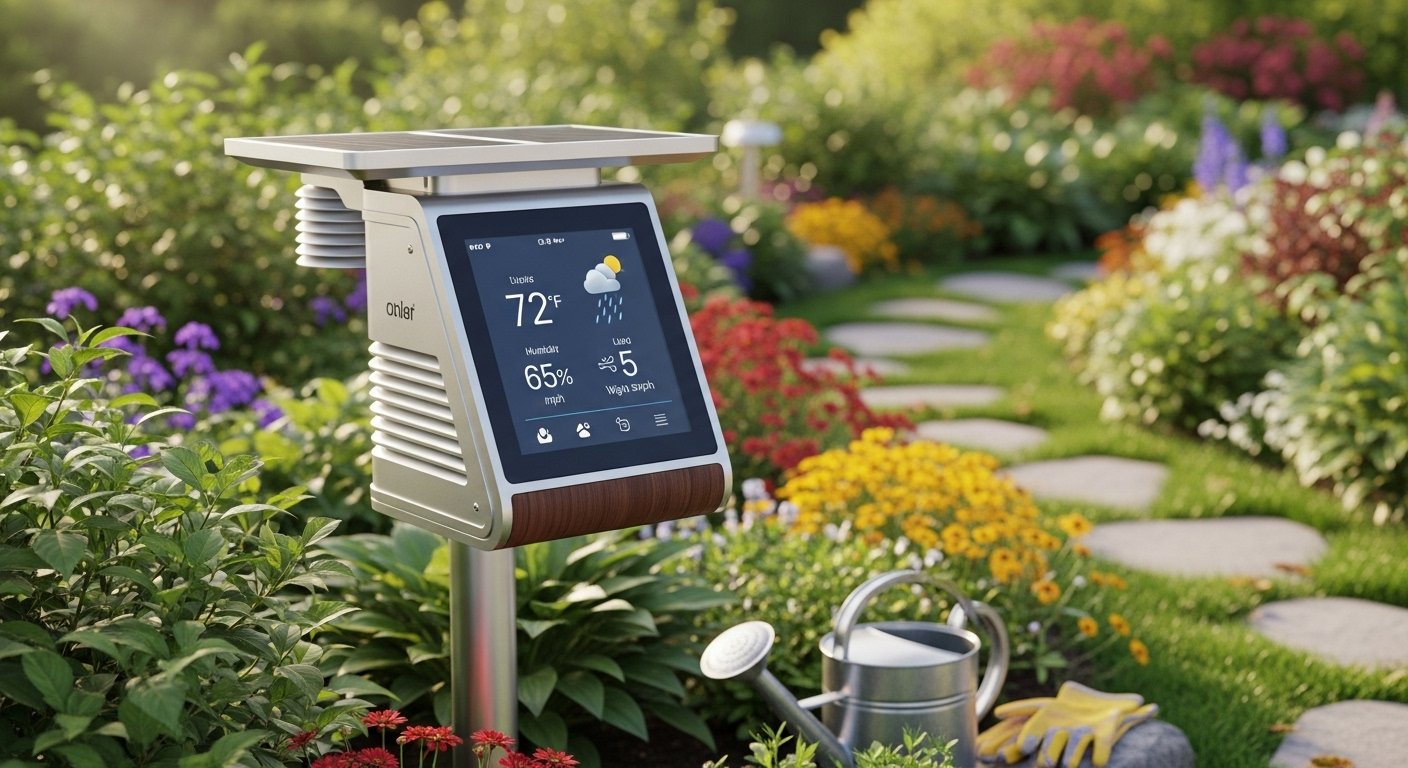
7. Smart Grow Lights
For those with `smart indoor gardens` or who extend their growing season, `smart grow lights` are crucial. These lights offer customizable spectrums and intensities, often controlled via an app. They can simulate natural daylight cycles, ensuring your plants receive the optimal light for each growth stage. Some models even integrate with plant sensors to adjust light automatically based on the plant’s needs. This precision fosters stronger, healthier plants and maximizes yields in any indoor environment.
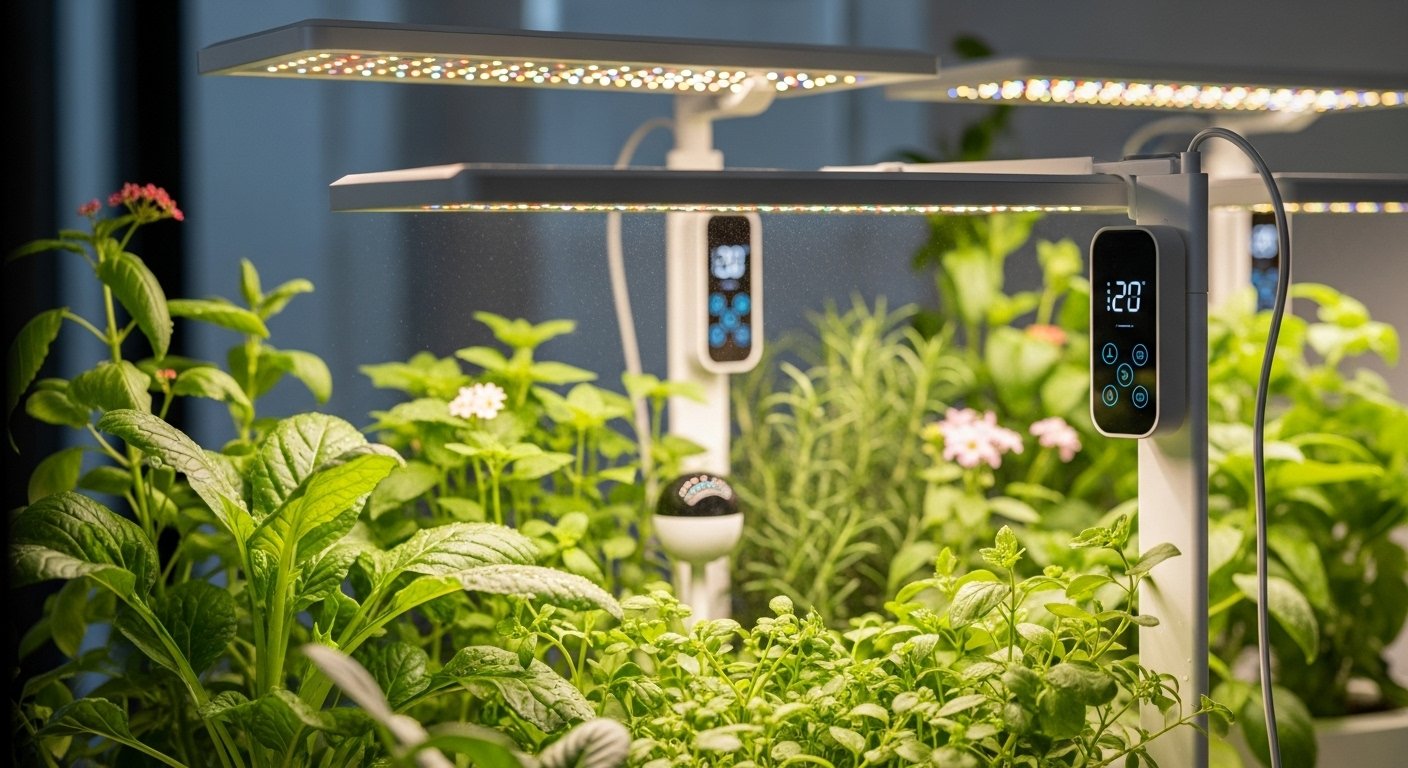
8. Garden Management Apps
`Garden management apps` serve as the central brain for your `automated garden system`. They connect to various `smart garden tools` like sensors, irrigation systems, and weather stations. These apps allow you to monitor all your garden’s parameters from a single dashboard on your smartphone or tablet [3]. You can receive alerts, view historical data, and even get personalized care recommendations for specific plants [7]. What is a smart gardening hub? Often, these apps function as a virtual hub, bringing all your `connected gardening tools` together for seamless control and data analysis.
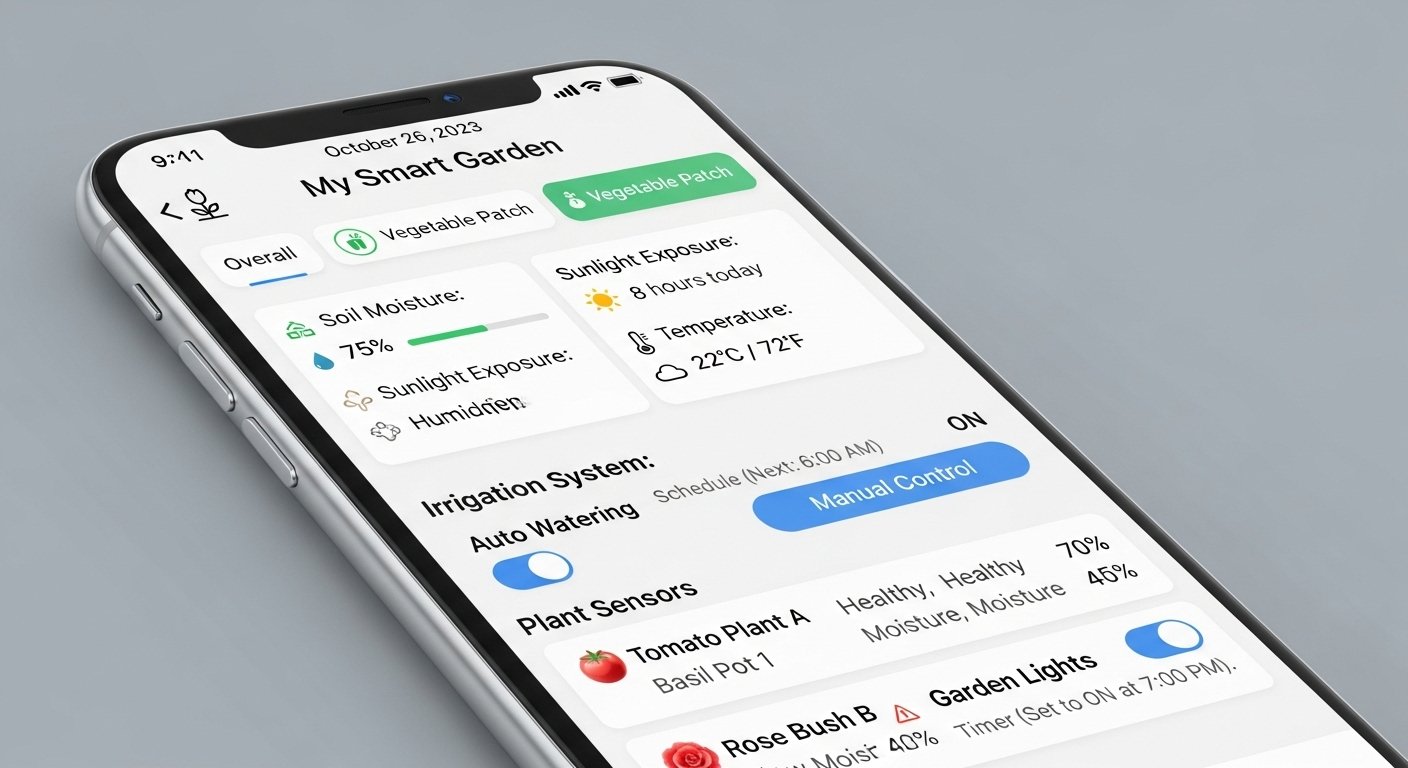
9. Automated Composting Solutions
Turning organic waste into nutrient-rich compost can be a manual and often messy process. `Automated composting solutions` simplify this essential task. These `smart garden tools` can automatically aerate, mix, and even monitor the temperature and moisture levels within the compost [1]. Some advanced systems might even connect to an app, providing updates on the composting process. This reduces the physical effort involved in composting. It also ensures a faster and more efficient breakdown of organic matter, providing your garden with high-quality fertilizer with minimal fuss.
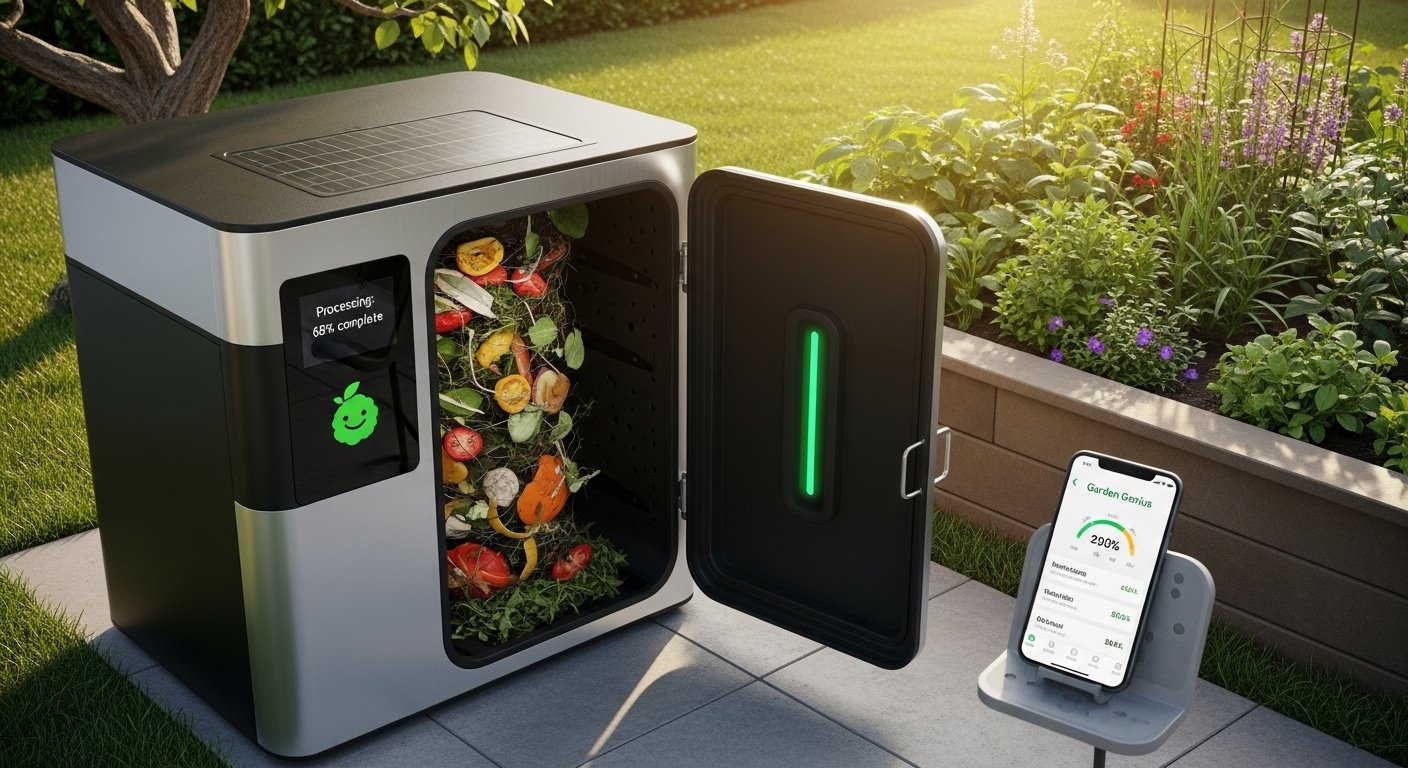
The Technology Behind Your Automated Garden
`Smart gardening technology` relies on a combination of advanced components. The Internet of Things (IoT) connects devices, allowing them to communicate and share data 2]. Sensors gather crucial information about the environment and plant health [10]. Artificial Intelligence (AI) and machine learning algorithms then process this data. They use it to make intelligent decisions, such as when to water or what light spectrum to use [Data]. This intricate network of `wifi garden sensors` and `connected gardening tools` creates a responsive, adaptive garden that requires less human intervention. To understand more about how these systems integrate, you can explore our guide on [how does smart home work.
The integration of AI-powered sensing solutions has dramatically improved plant growth efficiency by 45% and reduced manual intervention by 50% [Data]. Furthermore, automation has improved yield efficiency by 80%, significantly reducing labor demands [Data]. These statistics clearly demonstrate the profound impact `smart garden tools` are having on modern horticulture. They make gardening more productive and sustainable.
Key Takeaways
- Smart garden tools automate tasks like watering, mowing, and weeding.
- They utilize sensors, AI, and IoT for data-driven, precise care.
- Benefits include significant water, time, and labor savings.
- The market for intelligent gardening systems is experiencing rapid growth.
- Adopting these tools leads to healthier plants and more efficient yard management.
Embracing `smart garden tools` is a strategic move towards a more sustainable and enjoyable gardening experience. These innovations empower you to cultivate a thriving yard or indoor garden with unprecedented ease. By leveraging `automated garden tools`, you are not just simplifying tasks; you are investing in a greener, more efficient, and truly effortless connection with nature. Why not explore how these smart solutions can transform your yard today?
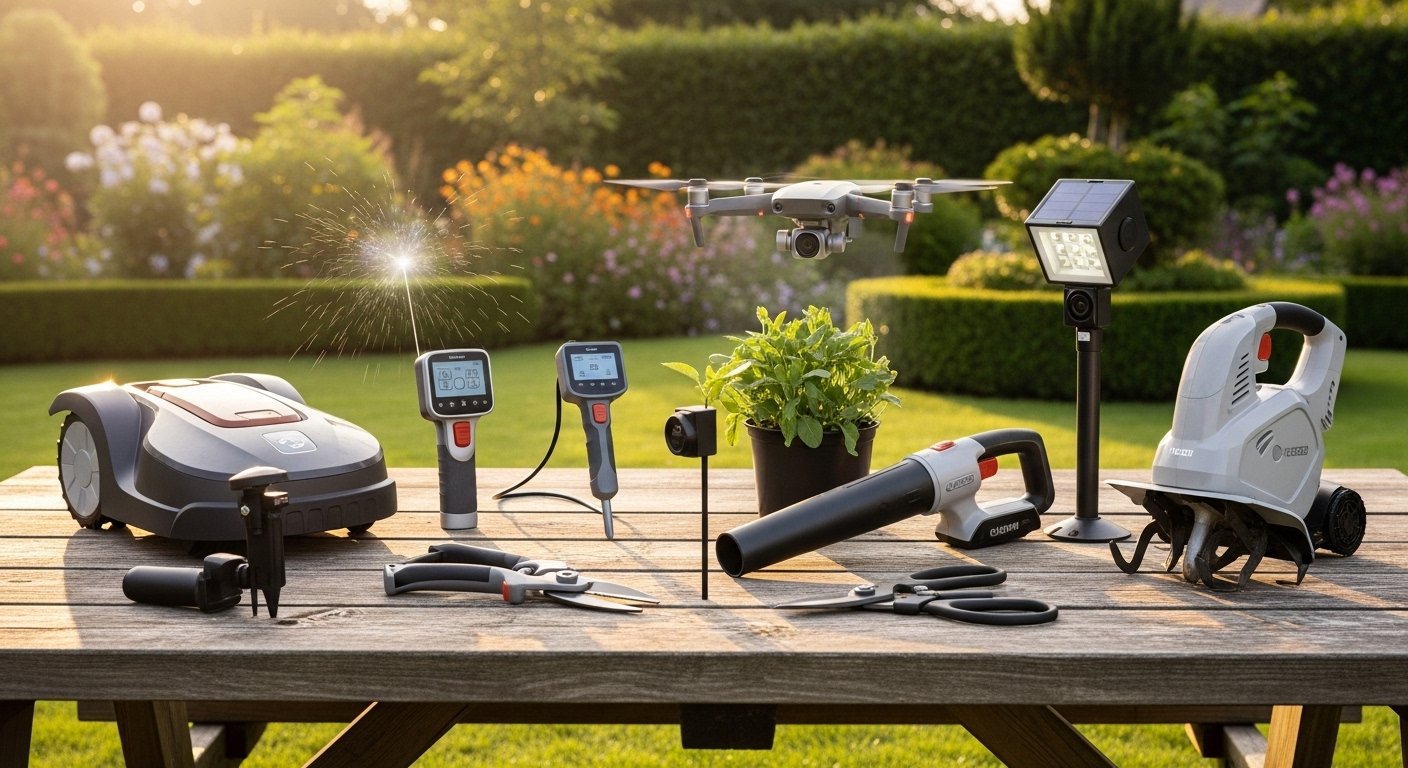
Leave a Reply